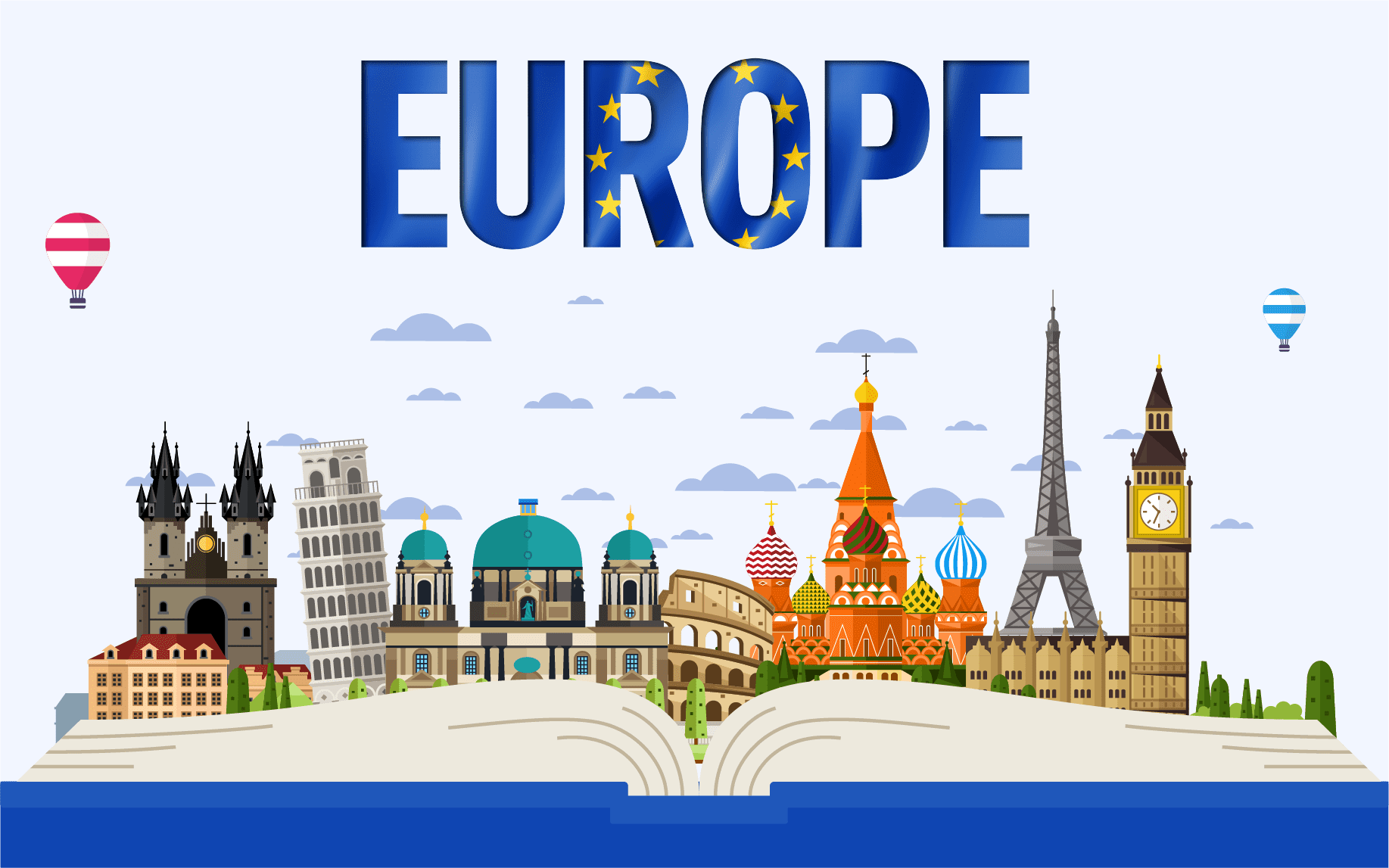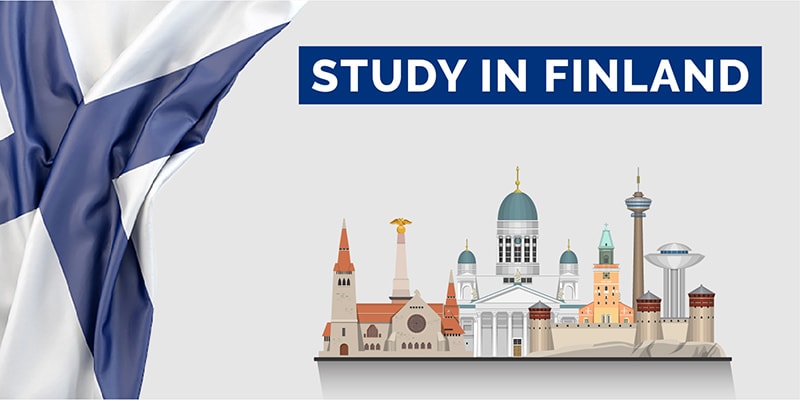Europe

Europe is home to some of the oldest, modern, and most advanced universities in the world. European countries welcome international students with warmth and grace, giving them plenty of opportunities to study and work in Europe. There is an array of courses available to study right now, from arts to engineering, from doctoral programmes to professional degrees. The following are a few interesting facts students choosing to study in Europe should know:
- The continent is the cradle of the oldest and significant languages in the world.
- Most higher education institutions in the European Union offer diverse programs such as
- Medicine, Engineering, Business, Journalism and Research Degrees.
- Europe is home to over 20+ national languages, including English, French, Spanish, Italian, German, Polish and Portuguese.
- There are 2500+ recognized higher education institutions in Europe.
- International students can enroll in a bilingual program to become fluent in other languages.
- Many European countries offer free education to international students with outstanding academic qualifications and research skills to contribute towards sustainable development.
- Almost all universities in Germany offer free education to students irrespective of their nationalities.
- The Norwegian government sponsors free education to international students with taxpayers' money.
Top European study destinations
Europe is a perfect destination to take up higher education. And there are multiple countries to choose for your higher education. Here are the top countries to study in Europe:
- Switzerland
- France
- The Netherlands
- Denmark
- Finland
- Germany
- Spain
Top Universities to Study in Europe
Europe is not just home to some of the oldest universities in the world but also has multiple universities ranked in the top QS World rankings.
Education System in Europe.
Though each European country has its distinct higher education system, all fall under the European Higher Education Area (EHEA). The EHEA system and the European Qualification Framework (EQF) help examine and monitor the syllabus across all European countries to follow uniformity and allow international students, academicians and researchers across Europe to collaborate seamlessly.
How to study in Europe from Nepal
Here are a few basic points that Nepalese students should keep in mind when planning to study in Europe from Nepal.
- Choose the study programme and the course you want to take.
- Make a list of the European countries and the universities where your course is offered.
- Contact your shortlisted colleges and universities.
- Examine your eligibility and admission requirements.
- Take the tests required for admission.
- Explore options to finance your studies.
- Get confirmation for admission.
- Apply for a student visa.
Eligibility criteria for studying in Europe
Here are some common eligibility criteria for studying in Europe:
- a minimum age of 17
- A minimum score of 50% in your high school exam
- Students need to write entrance exams like the GMAT or GRE to get admission to any European university.
- A language proficiency test is an important eligibility criteria for studying in Europe.
Cost of Studying in Europe
The major cost of studying in Europe depends on the tuition fees. These tuition fees vary across different countries in Europe. The factors that determine the cost of tuition fees are the course, country, and university of your choice.

Why Europe is Good For Students ?
Europe is home to some of the oldest, modern, and most advanced universities in the world. European countries welcome international students with warmth and grace, giving them plenty of opportunities to study and work in Europe. There is an array of courses available to study right now, from arts to engineering, from doctoral programmes to professional degrees.
Europe is not just home to some of the oldest universities in the world but also has multiple universities ranked in the top QS World rankings. Education System in Europe. Though each European country has its distinct higher education system, all fall under the European Higher Education Area (EHEA). The EHEA system and the European Qualification Framework (EQF) help examine and monitor the syllabus across all European countries to follow uniformity and allow international students, academicians and researchers across Europe to collaborate seamlessly.
Our Courses
Latest Blogs





.jpg)



.jpg)


.jpg)
